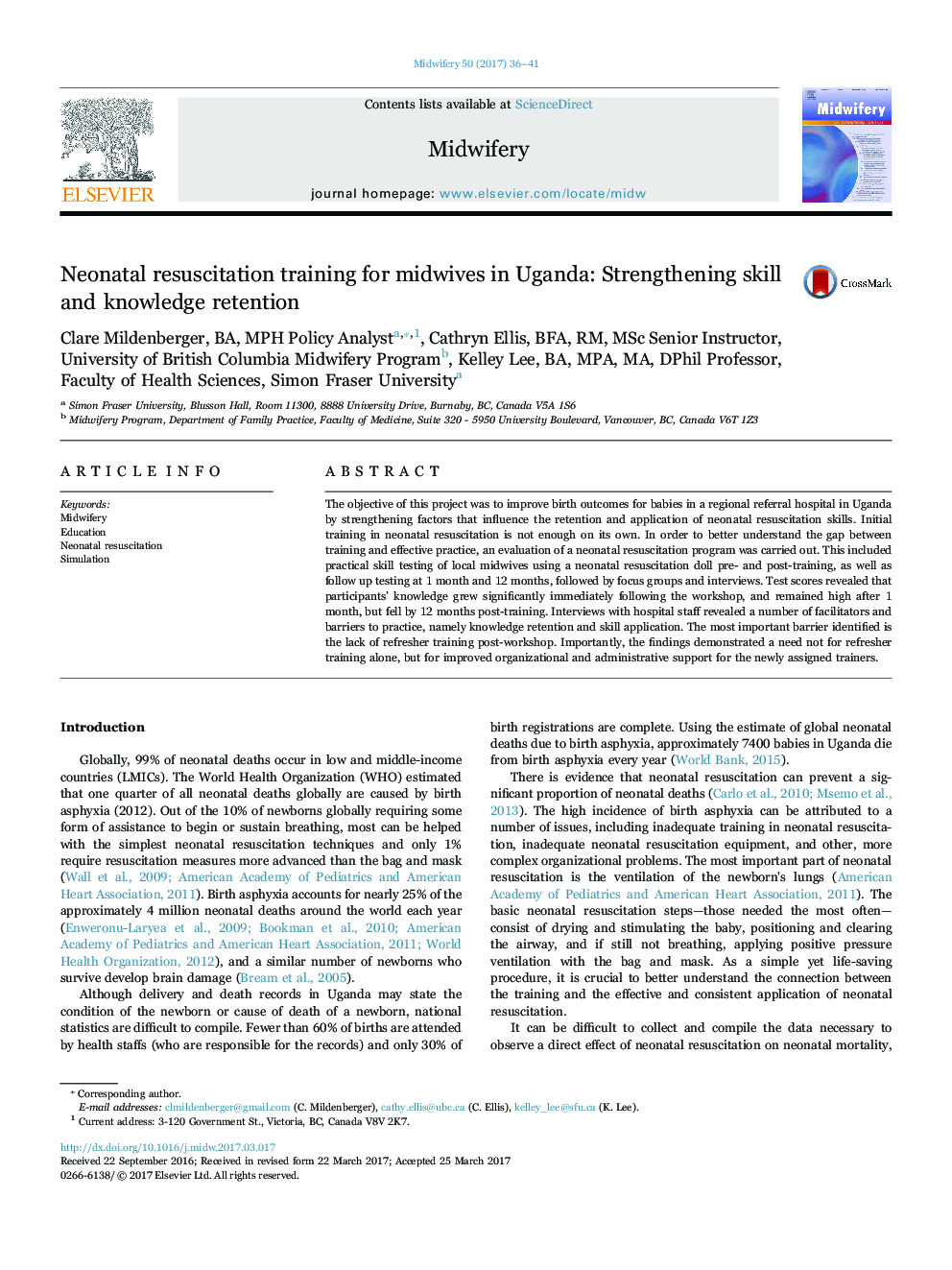| کد مقاله | کد نشریه | سال انتشار | مقاله انگلیسی | نسخه تمام متن |
|---|---|---|---|---|
| 5122349 | 1487134 | 2017 | 6 صفحه PDF | دانلود رایگان |
- Skill and knowledge retention is important in resuscitation training.
- Clinical practice alone is not enough to maintain skills and retain knowledge.
- There is a need for regular, refresher trainings with locally trained trainer.
- The trainer requires the resources and authority to hold the trainings regularly.
- Optimal frequency and structure of training is yet to be determined.
The objective of this project was to improve birth outcomes for babies in a regional referral hospital in Uganda by strengthening factors that influence the retention and application of neonatal resuscitation skills. Initial training in neonatal resuscitation is not enough on its own. In order to better understand the gap between training and effective practice, an evaluation of a neonatal resuscitation program was carried out. This included practical skill testing of local midwives using a neonatal resuscitation doll pre- and post-training, as well as follow up testing at 1 month and 12 months, followed by focus groups and interviews. Test scores revealed that participants' knowledge grew significantly immediately following the workshop, and remained high after 1 month, but fell by 12 months post-training. Interviews with hospital staff revealed a number of facilitators and barriers to practice, namely knowledge retention and skill application. The most important barrier identified is the lack of refresher training post-workshop. Importantly, the findings demonstrated a need not for refresher training alone, but for improved organizational and administrative support for the newly assigned trainers.
Journal: Midwifery - Volume 50, July 2017, Pages 36-41
